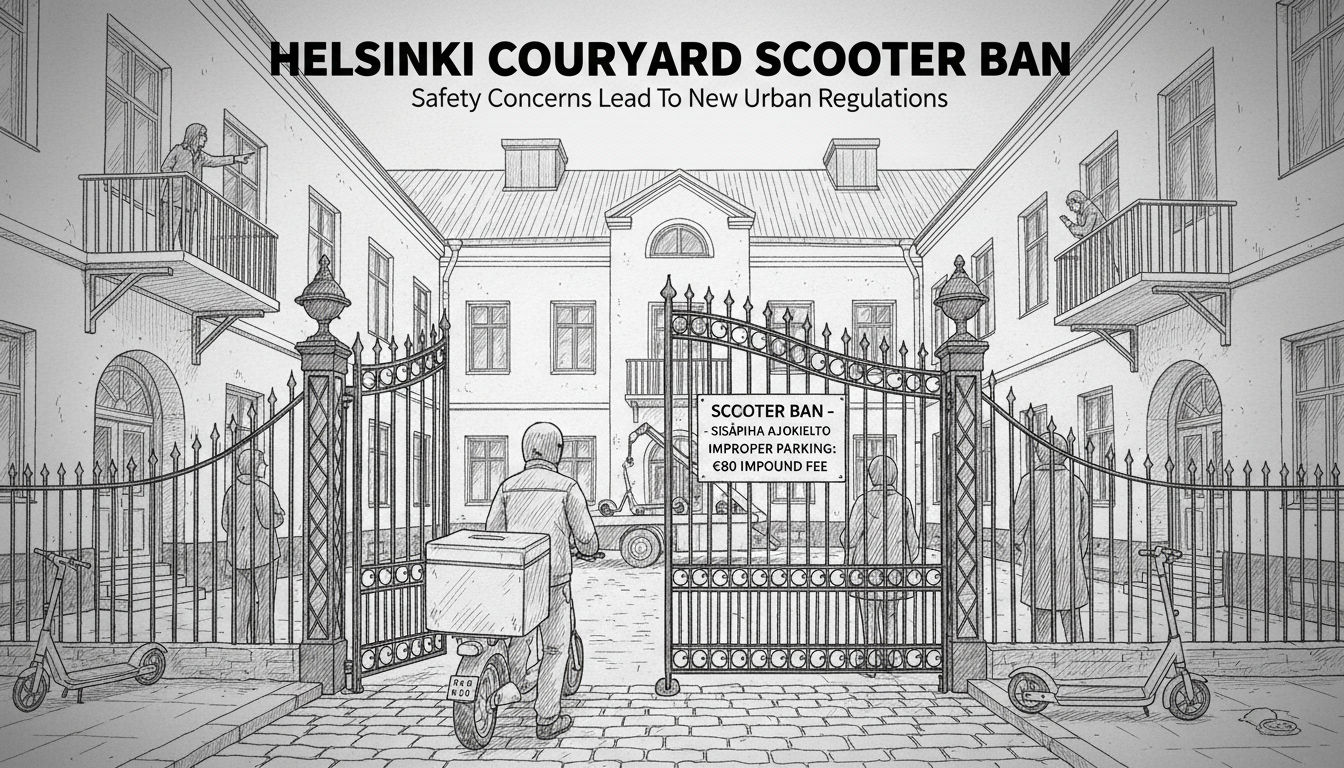A major Helsinki property management company has banned food delivery scooters from apartment building courtyards. The ban targets electric scooters used by delivery workers in the city center. Lumo Homes imposed the restriction after safety complaints from residents.
The company's property manager Ville Kilpi said wide-tired electric scooters favored by food couriers created hazards. They blocked emergency access routes and children's play areas. The situation became particularly problematic at one building in the Kamppi district.
Residents reported seeing more than a dozen delivery scooters stored in the courtyard. Photographs showed clusters of vehicles parked under building canopies and throughout the shared space. The company distributed notices to residents at Lönnrotinkatu 30 explaining the new policy.
Improperly parked vehicles will now be moved to a nearby garage. Owners must pay an 80 euro fee to retrieve their scooters. The company insists this isn't a punishment but a safety measure.
Kilpi emphasized the policy aims to ensure common areas remain safe and functional for all residents. The rules are based on the building's existing regulations. When followed correctly, no vehicles need relocation and no fees apply.
Electric scooters and bicycles can still be stored for free in basement storage areas. However, batteries must be removed during storage for fire safety. Vehicles cannot block other residents from using the storage facilities.
The garage being used for impounded scooters previously served as a car-sharing parking spot and additional bicycle storage. It saw little use in those roles and returned to the building's control.
This situation reflects broader challenges facing Finnish cities as delivery services expand. Helsinki struggles to balance modern convenience services with traditional Nordic living standards. Shared residential spaces weren't designed for commercial delivery operations.
Similar conflicts have emerged across Nordic capitals. Copenhagen and Stockholm also grapple with delivery scooter parking issues. The problem highlights how urban infrastructure lags behind changing consumer habits.
Food delivery services exploded in popularity during recent years. Companies like Wolt and Foodora rely heavily on electric scooters for quick urban deliveries. Their workers need convenient parking near customer locations.
Residents question whether the ban fairly targets delivery drivers. One resident wondered why so many delivery scooters gathered at this particular courtyard. The property manager declined to speculate about this pattern.
The 80 euro retrieval fee matches similar penalties for improper car parking in Helsinki. It aims to deter violations rather than generate revenue. Building management hopes clear rules will prevent future conflicts.
Nordic property management often takes stricter approaches to shared space regulation than other regions. The communal living model common in Scandinavian cities requires strong rule enforcement. This maintains quality of life in densely populated urban areas.
As delivery services continue growing, cities must develop better solutions. Designated commercial vehicle parking or delivery hubs could prevent future conflicts. For now, individual buildings implement their own temporary fixes.
The immediate impact falls on delivery workers who now face limited parking options. They must find alternative storage while working in central Helsinki. This could affect delivery times and working conditions during cold winter months.
Building residents gain safer common areas but lose some convenience. The situation shows how urban adaptation occurs through small conflicts and resolutions. Helsinki's experience may inform other Nordic cities facing similar challenges.

